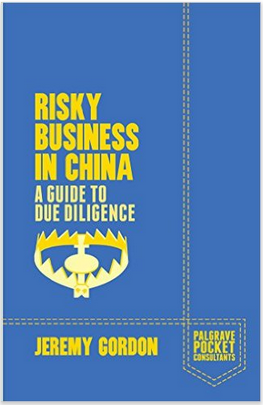Last year, Jeremy Gordon from China Business Services mentioned he was collecting information for a book. He asked me a few questions about factory audits.
 Well, the book came out recently and is called Risky Business in China. It is a great guide on what and how to investigate a Chinese company.
Well, the book came out recently and is called Risky Business in China. It is a great guide on what and how to investigate a Chinese company.
It outlines and explains in great details the long list of pitfalls Western companies tend to overlook while doing business with Chinese companies, as well as the type of verifications/investigations that are appropriate.
It is written for Western companies that want to work with a Chinese company, whether buying that company, forming a joint venture with them, purchasing products from them, or using them as a distributor.
Jeremy describes the ways some Chinese companies hide reality. Here are just a few examples:
- High expenses through a travel agency (which are “used like ATMs to distribute illegal payments”) might indicate that customers are bribed.
- Chinese companies often lend money to each other while a bank acts as middleman, so this is not easy to spot.
- An accounting audit that started from the company’s server uncovered 12 sets of books (!) by checking deleted and overwritten files.
I wrote a few key takeaways from the book:
- Do not rely only on documents provided by the company. “Documentation provided by people who want to defraud is often fraudulent”.
- Audit firms often tick boxes in a checklist, rather than understanding the context and looking at reality on the ground. Starting from tangible elements is always better.
- Meeting/interviewing people, and then triangulating information from several people (ideally suppliers, employees, and customers), will yield much better insights than a document review.
- The longer your supply chain, the more difficult it will be to keep an eye on what happens.
- An ERP system will force some level of transparency in a Chinese company. (This is one of the first steps we advise when advising a company on how to prevent corruption of their buyers).
- The target of an investigation might be offended by the idea of being investigated. But a variety of covert due diligence tools are available.
- Try to get information on the reputation of key officers in the company. “Tigers do not change their stripes”.
I highly recommend this book! It is easy to read and not excessively long.
